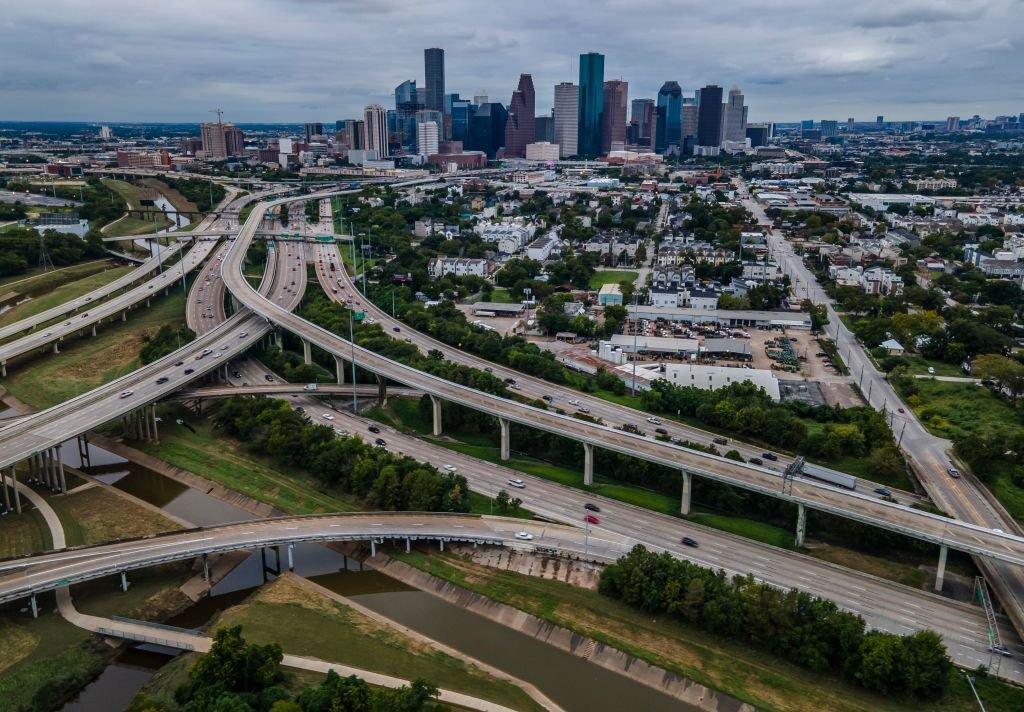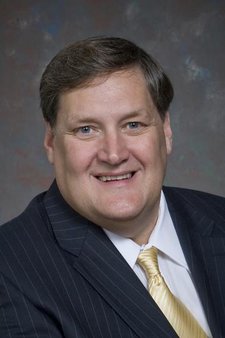
By Maria Clara Cobo
Sept. 4, 2024
The US spends billions each year constructing and repairing roadways. But new research finds that the costs of expanding roads in urban areas are three times greater than its potential benefits.
“The US urban roadway system is overbuilt,” the authors write in the Journal of the American Planning Association. “As a result, expanding roadway systems is unlikely to have anything close to the economic benefits that state and federal policymakers hope for.”

Interstate 10 in Houston is one of a number of US roads slated for expansion, despite community resistance. Photographer: Houston Chronicle/Hearst Newspapers via Getty Images
Highway expansion advocates argue that adding more lanes can improve mobility by relieving traffic jams and reducing travel times. But the researchers found that, even assuming a generous estimate of how much time might be saved by new roads for both cars and freight trucks, the monetary value of that savings did not exceed its cost in urban areas.
“The costs of roadways are extremely high,” said Erick Guerra, a professor at the University of Pennsylvania’s Weitzman School of Design and lead author of the study. “We’re stuck in this process of building more highways and widening roadways even though the economic justifications aren’t there anymore.”
The researchers considered several kinds of costs: They looked at direct government spending on roads, external costs such as pollution and traffic deaths and the value of roadway land that could otherwise be used for different purposes like housing, shops or public space.
Even considering only direct government spending on roads, they found the costs still exceeded the benefits by 17%. The expense is nearly three times greater than the benefits when accounting for the worth of the land, excluding those external costs.
The findings contradict past analysis from the US Department of Transportation, which reports a “healthy return on investments from highways,” according to the researchers. The DOT did not respond to requests for comment.
West Virginia-Sized Land Area
A core part of the new study was conducting a novel assessment to quantify the amount of space and land value dedicated to roadways across 316 US cities, where approximately 80% of the population lives.
“Beyond disagreement on costs and benefits, researchers and policymakers do not even know how much land is dedicated to roadways, where it is located, or how much it is worth,” the authors write. “Without a better accounting, it is difficult to assess whether there is too much or too little roadway.”
Their estimate finds that roads account for a fifth to a quarter of all urbanized land in the US — that’s equal to the total area of West Virginia. They quantify the total value of that land as $4.1 trillion in 2016. Adjusted for inflation, that’s $5.4 trillion today. Large and wealthy cities like New York, Los Angeles and Chicago represent a significant portion of that value, according to the study. In these cities, the opportunity cost of using land for roads is particularly high, they find.
The research adds to a debate over building new highways and widening existing ones. Many economists argue that adding new lanes simply increases the supply of cars on the road and doesn’t substantially reduce congestion — a concept known as induced demand.
The study’s authors call for policymakers to question the benefits of adding or expanding roads. But they also urge policies that remove existing roads: They find that reducing roadway area by 10% would yield a net benefit of nearly $28 billion a year.
“From an economic perspective, the best way to use a lot of the land is to reallocate it into the private sector for shops and houses, or into the public sector for parks and other forms of transportation like busways or bike lanes,” said Guerra. “Dedicating less of it to transportation would certainly be good for the economy, for the environment and for public health.”
© 2025 Bloomberg L.P.


